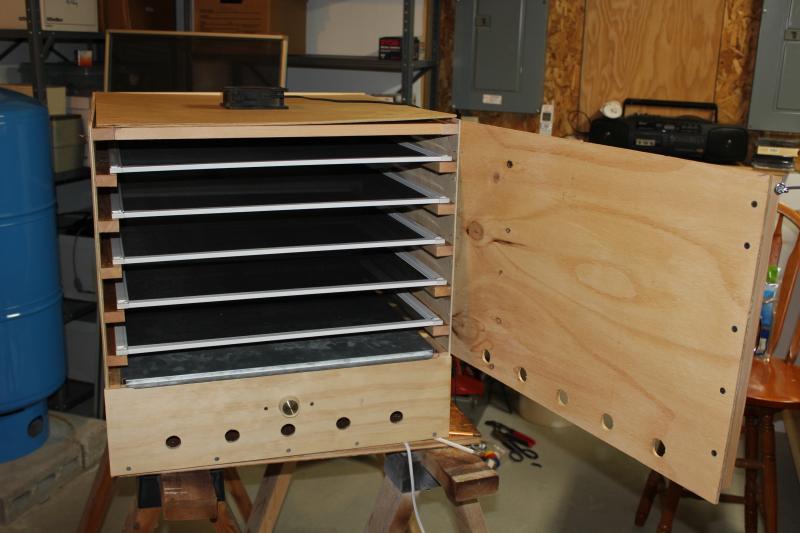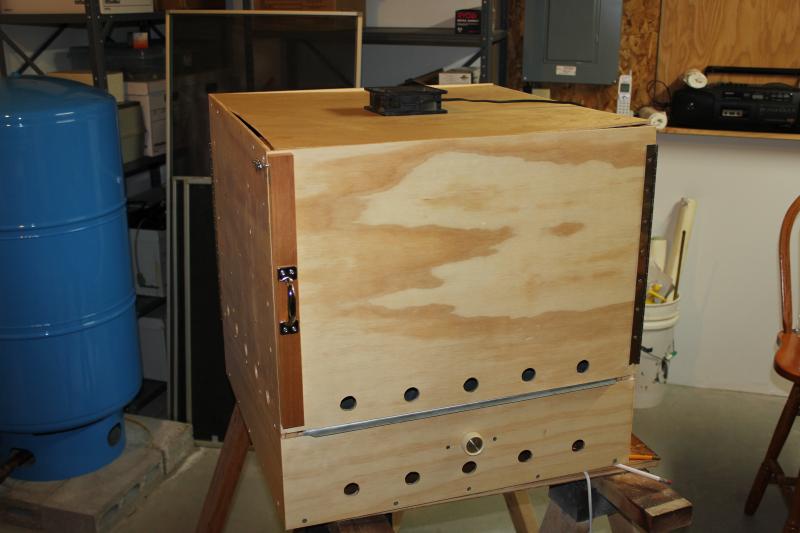Take it or leave it, but this is the
best way you can dry your hops. The key here is don't think of them as corn, fruit, or jerky. Think of them as
flowers. You have picked a rose. You not only want to preserve the physical specimen (the lupulin glands in this case) but you want to keep as much of the oils and aromas as possible. Using heat will boil those oils and aromas away.
Step 1: Get a screen large enough to lay out all the cones 1 cone deep. Don't pile them up.
Step 2: Put the screen in an area that is shaded (UV light degrades oils and alphas) and as dry as possible. I know not everyone's SWMBO will give up the kitchen table or allow the smell of hops in the house, so the garage often is good enough.
Step 3: Make sure there is a way for the moisture to leave the area. If it is in the garage, leave a window open or crack the door. If you want, have a box fan gently blowing across them but have it above blowing down. If it is blowing from the underside, you may shake them up too much. As the dry, they lose weight and could float off the screen. There is no magic behind the big guys blowing air up through the beds...they just do it because they don't know any better.
Step 4: When they get close to being dry, you will notice the bracts (leaves) will start to open like a pine cone dropping its seeds. At this point, you need to do something to lower the relative humidity to finish the drying. If you were one of the big guys, you would heat the air up to 140F to drop the RH so you can get the moisture out. DON'T DO THIS. That's fine for Bud, but not for you.
You are going to take your screen and beg SWMBO to bring them in the air conditioned house. This will finish the drying process. If you can't do that, set up a tent, clear out a closet, build a plastic tent in the garage...whatever you can do...and place the hops and a dehumidifier in there. If it is adjustable, set the dehumidifier at about 40% RH and they will finish off in a few hours. The strig (stem) won't be brittle but it won't feel moist or be very pliable.
OK, why did I pick 40%? The following picture is an isotherm for hops:
The key here is that if you want your hops dried in the range of 8 to 10% moisture content, it can't be done unless it is exposed to air that is less than 50% to 60% relative humidity. In my driers, I finish them off in 30% RH or less air but there is a danger of overdrying. If you sit at 40%, which is about the best most dehumidifiers can do, you could over dry but it would take several days. They really don't start falling apart until 5.3% or so in my experience.
If you really want to speed it up, put them in the tent with the dehumidifier the entire time. As long as there is enough air flow, you could be done in 24 hours or less.


![48B04475000D69D2000040D12207003201CC02019C0407999906[1].jpg 48B04475000D69D2000040D12207003201CC02019C0407999906[1].jpg](https://cdn.homebrewtalk.com/data/attach/6/6212-48B04475000D69D2000040D12207003201CC02019C0407999906-1-.jpg)




